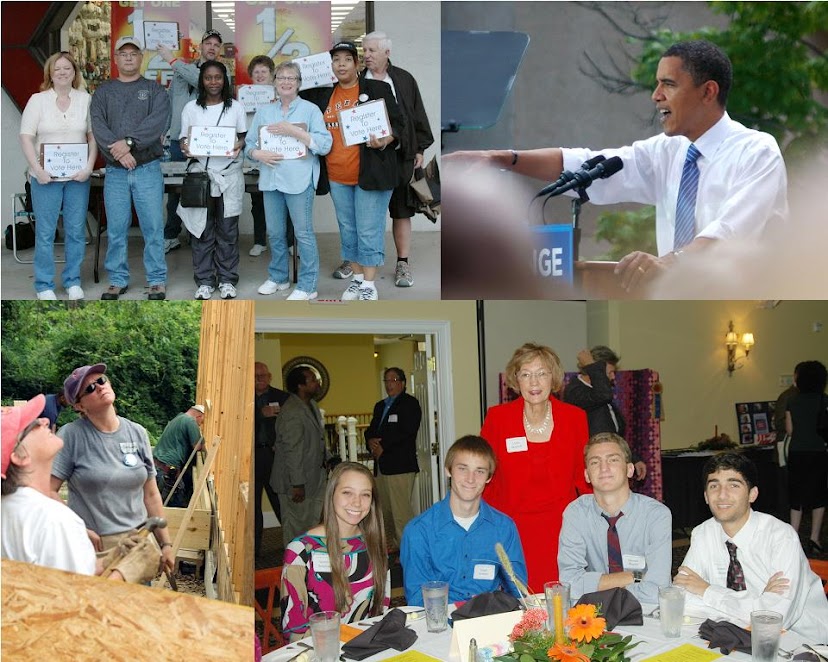President Obama's selection to receive the Nobel Peace Prize generated significant criticism as being undeserving and based too much on hope than accomplishment.
You can count me among those who think his receipt of the prize is premature. But you can also count me among those who believe that the actions he is taking are establishing the groundwork to produce the results that will be very deserving of this recognition.
In my view, Obama has set a very clear international mission for his term in office: Create partnerships with other countries to respond to the existing and emerging set of global challenges. These challenges include not only terrorism and control of nuclear weapons, but also environmental pollution, public health and balanced economic growth.
This mission reflects a strong understanding of the fact situation -- namely, the emergence and development of a diverse set of other economic powers in the world (e.g., China, India, the European Union, Brazil, the Middle East oil emirates, the former Soviet republics); and the scope and complexity of challenges that are beyond the resources of any single country to solve.
Each of the significant challenges is borderless and dispersed throughout the global landscape. Like market opportunities in the business world that are beyond the capabilities of any single enterprise, they will require the formation of joint ventures among former competitors who will continue to have disparate as well as common interests. A recent book, "Dreams and Shadows," by Robin Wright, a journalist with 30-plus years covering the Middle East, provides useful insights into the opportunities for more collaboration among current adversaries.
Based on personal interviews with emerging political leaders in several Middle East countries, Wright identifies more moderate, pragmatic and even democratic attitudes among them than exist in current leaders. But these "new leaders" also have strong feelings about understanding, recognition and respect for their cultures, interests and needs.
Engaging them as partners will require this understanding, recognition and respect. President Obama's outreach efforts are not "kow-towing." They are the important first steps in a strategic process of engagement and partnership building.
 The United States will not be able to sustain the role of the dominating force in world affairs, any more than the Roman or British empires could. Nor is it desirable to try to do so. Political analyst Howard Fineman has correctly observed that we cannot act as a gated community, motivated only by our self interests. Our interests, in varying degrees, are too interdependent with those of other countries.
The United States will not be able to sustain the role of the dominating force in world affairs, any more than the Roman or British empires could. Nor is it desirable to try to do so. Political analyst Howard Fineman has correctly observed that we cannot act as a gated community, motivated only by our self interests. Our interests, in varying degrees, are too interdependent with those of other countries.
However, not being the dominating force does not preclude the U.S. from being a very powerful force. What is required is the use of less formal methods of exercising power: dialogue, negotiation, moral leadership, more "speaking softly but still carrying a big stick."
Finally, partnerships entail a sharing of resources as well as responsibility and authority.
International initiatives divert our resources away from domestic needs, which are significant, and create downstream obligations (e.g., caring for the wounded and the families of those who lose their lives). The more we do things unilaterally, and without consultation and consideration of the interests of both current and potential partners, the larger the diversion of resources away from our domestic needs.
This fundamental fact situation is well understood by President Obama and is guiding his thoughtful approach to international affairs.
Brian Deaton lives in Pinehurst.
Based on personal interviews with emerging political leaders in several Middle East countries, Wright identifies more moderate, pragmatic and even democratic attitudes among them than exist in current leaders. But these "new leaders" also have strong feelings about understanding, recognition and respect for their cultures, interests and needs.
Engaging them as partners will require this understanding, recognition and respect. President Obama's outreach efforts are not "kow-towing." They are the important first steps in a strategic process of engagement and partnership building.
 The United States will not be able to sustain the role of the dominating force in world affairs, any more than the Roman or British empires could. Nor is it desirable to try to do so. Political analyst Howard Fineman has correctly observed that we cannot act as a gated community, motivated only by our self interests. Our interests, in varying degrees, are too interdependent with those of other countries.
The United States will not be able to sustain the role of the dominating force in world affairs, any more than the Roman or British empires could. Nor is it desirable to try to do so. Political analyst Howard Fineman has correctly observed that we cannot act as a gated community, motivated only by our self interests. Our interests, in varying degrees, are too interdependent with those of other countries. However, not being the dominating force does not preclude the U.S. from being a very powerful force. What is required is the use of less formal methods of exercising power: dialogue, negotiation, moral leadership, more "speaking softly but still carrying a big stick."
Finally, partnerships entail a sharing of resources as well as responsibility and authority.
International initiatives divert our resources away from domestic needs, which are significant, and create downstream obligations (e.g., caring for the wounded and the families of those who lose their lives). The more we do things unilaterally, and without consultation and consideration of the interests of both current and potential partners, the larger the diversion of resources away from our domestic needs.
This fundamental fact situation is well understood by President Obama and is guiding his thoughtful approach to international affairs.
Brian Deaton lives in Pinehurst.

No comments:
Post a Comment